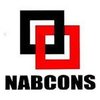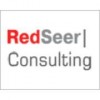Filter interviews by
Your Retail Coach Senior Consultant Interview Questions and Answers
Your Retail Coach Senior Consultant Interview Experiences
1 interview found

SOP drafting on HR processes
(1 Question)
- Q1. General questions, HR policies discussion
(1 Question)
- Q1. Discussion on project and past experiences
Top trending discussions






Interview questions from similar companies

I applied via Referral and was interviewed before Oct 2021. There were 3 interview rounds.

It was a GD about the decision making skill.
Case study was about a company which wants to establish 8ts market in anew country
Interview Preparation Tips

I applied via Walk-in and was interviewed before Oct 2020. There were 6 interview rounds.
Interview Questionnaire
2 Questions
- Q1. Basic Aptitude
- Q2. Reasoning Questions
Interview Preparation Tips

Interview Questionnaire
2 Questions
- Q1. Questions related to Loan Cycle (Origination, Management, Collections) i.e. LOS LMS CMS
- Q2. You should be able to justify your statements and you should be confident.
Interview Preparation Tips

I applied via Indeed and was interviewed before Feb 2020. There were 5 interview rounds.
Interview Questionnaire
1 Question
- Q1. Very basics 2 questions related to the domain(Finance in my case). They are more interested in knowing about your internship experience and the kind of work you did with your previous employer.
Interview Preparation Tips
* Speak with confidence.
* Communicate well.
* Its the best practice to say No to something which you don't know, rather than beating around the bush and answering nonsense.
* Dress well, because of the first impression factor.

I applied via Naukri.com and was interviewed before Dec 2020. There was 1 interview round.
Interview Questionnaire
1 Question
- Q1. I was appearing for a big data role. Questions were simple and straight forward.
Interview Preparation Tips

I applied via Campus Placement and was interviewed before May 2021. There were 2 interview rounds.

Case study on SAP implementation
Interview Preparation Tips

I applied via Campus Placement and was interviewed before Nov 2020. There was 1 interview round.
Interview Questionnaire
2 Questions
- Q1. Guestimate - number of anu malik music CDs sold in 1995
- Ans.
Approximately 1 million Anu Malik music CDs were sold in 1995.
Anu Malik was a popular music composer in the 90s
CDs were the primary mode of music distribution in 1995
Assuming Anu Malik's popularity, 1 million CDs sold seems reasonable
- Q2. Case - increase Starbucks sales in India
- Ans.
Increase Starbucks sales in India case
Conduct market research to understand local preferences and culture
Develop a menu that caters to Indian tastes, such as adding more tea-based drinks
Partner with local businesses and influencers to increase brand awareness
Offer promotions and discounts to attract new customers
Expand store locations to reach more customers in different regions
Interview Preparation Tips

Interview Questionnaire
5 Questions
- Q1. Tell me something about yourself?
- Q2. Why you want to join us?
- Q3. Articleship Experience
- Ans.
Articleship experience is essential for gaining practical knowledge and skills in the field of consulting.
Articleship provides hands-on experience in real-world scenarios.
It helps in understanding the practical application of theoretical knowledge.
Working under experienced professionals enhances skills and knowledge.
Articleship is a crucial step towards becoming a successful consultant.
- Q4. Recently adapted Ind As's
- Ans.
Ind AS's are Indian Accounting Standards converged with IFRS.
Ind AS's are applicable to certain classes of companies in India.
They aim to bring transparency and comparability in financial reporting.
Ind AS's have been adapted from IFRS with certain modifications.
They cover various aspects of accounting such as revenue recognition, leases, financial instruments, etc.
- Q5. FAR check if each one FA is located severly (proced"s involved)
- Ans.
To check if each FA is located severely, follow the FAR procedures.
Refer to FAR Part 45 for definitions and identification of FAs
Check the records of each FA to determine its location
Ensure that the location of each FA is compliant with applicable regulations
If any FA is found to be located severely, take appropriate corrective action

I applied via Referral and was interviewed before Aug 2021. There were 2 interview rounds.
Its a 120 min test with 3 section to check excel and communication skills.
(1 Question)
- Q1. Technical plus HR round.
Interview Preparation Tips
- Excel
- Taxation
Your Retail Coach Interview FAQs
Tell us how to improve this page.
Your Retail Coach Interviews By Designations
Interview Questions for Popular Designations
- Associate Consultant Interview Questions
- Senior Associate Consultant Interview Questions
- Lead Consultant Interview Questions
- Technical Consultant Interview Questions
- Consultant Interview Questions
- Associate Technical Consultant Interview Questions
- Principal Consultant Interview Questions
- Technology Consultant Interview Questions
- Show more
Your Retail Coach Senior Consultant Interview Process
based on 1 interview
Interview experience
Senior Consultant Interview Questions from Similar Companies
|
HR Intern
3
salaries
| ₹2 L/yr - ₹4 L/yr |
|
Video Editing and Graphic Designer
3
salaries
| ₹1.8 L/yr - ₹2.2 L/yr |

Deloitte

Ernst & Young

ZS

Mercer
- Home >
- Interviews >
- Your Retail Coach Interview Questions >
- Your Retail Coach Senior Consultant Interview Questions











